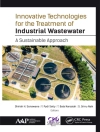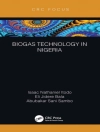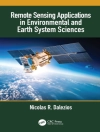Against this background, and in order to facilitate a broad discussion on the contribution of IT toward implementing the UN SDGs, this book is being produced. The book gathers inputs from universities, enterprises, and research organizations working on matters related to IT and sustainable development in a variety of contexts. It also provides a platform for the dissemination of information on the latest initiatives, paving the way for technology transfer and networking. Last but not least, a further aim of the book is to present methodological approaches and experiences deriving from case studies and projects, which aims to show how IT may support sustainability efforts in a wide range of settings and contexts. Digital technologies are now widely spread and the variety of tools and methods available today means that they can potentially useful in helping to achieve the United Nations Sustainable Development Goals (UN SDGs). However, the gap between technological innovation and sustainable development applications is quite wide. For instance, it is unclear how artificial intelligence can be leveraged to tackle some of the world’s biggest environmental challenges, including climate change, biodiversity, and water management. Also, there is a need to highlight how innovative green technologies and their applications in areas such as renewable energy, waste management, and sustainable agriculture may be used and to showcase how technological innovation can lead to more sustainable production and consumption patterns.
สารบัญ
1. From efficiency to sustainability: Examining the paradox of digitalization of energy .- 2. AI-Based Predictive Maintenance Strategies For Improving The Reliability Of Green Power Systems.- 3. AI-Powered Solutions Advancing UN Sustainable Development Goals: A Case Study in Tackling Humanity’s Challenges.- 4. Towards Implementing SDG-4: Leveraging AI in Today’s Educational Landscape.- 5. Biotechnology and Digital Health Advancements in the 21st Century A Case Study on the Adoption of Telemedicine for Managing Chronic Diseases.- 6. Innovative Technology Adoption in Food Retail: Identifying Drivers for Embracing Vertical Farming to Achieve Sustainable Food Supply Chains.- 7. Quality Education: A Key Component of the United Nations Sustainable Development Goals (SDGs).- 8. The Global Learning in Agriculture Community: A Digital Community of Practice to Support Education for Sustainable Development.- 9. Powering Sustainable Mobility: Electric Vehicles the Future of Smart Cities in India.- 10. Artificial Intelligence of Things for Sustainable Development of Smart City Infrastructures.- 11. Extended Reality and the Implementation of the UN Sustainable Development Goals: Opportunities, Challenges and Future Directions.- 12. Universal Access to Internet and Sustainability: Achieving the UN’s Sustainable Development Goals.- 13. Internet of Things and Sustainability: Opportunities and Challenges.- 14. Optimizing Green Power and Green Energy through Digital Technologies.- 15. PREDICTING ADOPTION INTENTION AND WILLINGNESS TO PAY FOR THE ELECTRIC VEHICLE TO BUILD SUSTAINABLE CITIES IN INDIA: USING AN EXTENDED TPB MODEL.- 16. Science Diplomacy Online: Implementing sustainable development in the virtual world.- 17. Pedagogical Paradigm Shift: Rethinking Education for Sustainable Development.- 18. Digital Technologies in Smart Sustainable Cities: Focal cases in the UAE.- 19. Investigating the Integration of Industry 4.0 and Circular Economy Practices for Sustainable Manufacturing.- 20. Responsible Digital Technologies: Shaping Sustainable Practices.- 21. Technological Advancements in Promoting Ecosystem Health.- 22. Universal Access to the Internet for Attaining Responsible Consumption-based Sustainable Development Goal (SDG).- 23. DIGITAL DIVIDE AND SUSTAINABLE DEVELOPMENT.
เกี่ยวกับผู้แต่ง












